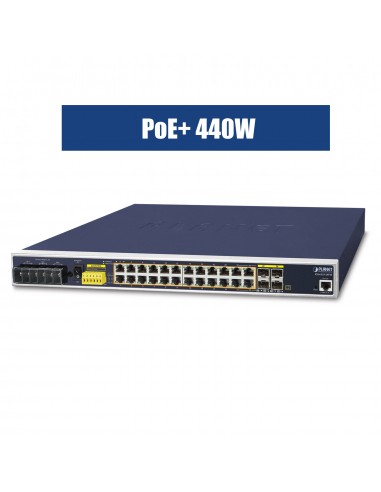IGS-6325-24P4S: 24 puertos Gigabit PoE+, 4 puertos SFP. ERPS
IGS-6325-24P4S
Gestionabilidad: Capa 3.
Puertos de cobre: 24 puertos 10/100/1000.
Puertos de fibra: 4 puertos 1000 SFP.
Alimentación PoE: Sí, PoE+.
ERPS: Sí.
Temperatura de trabajo: -40°C hasta 75°C.
CARACTERÍSTICAS TÉCNICAS
- Alimentación PoE
- PoE+
- Puertos RJ45
- Hasta 24 Puertos
- Puertos SFP
- Hasta 4 Puertos
- Velocidad de red
- Gigabit Ethernet

